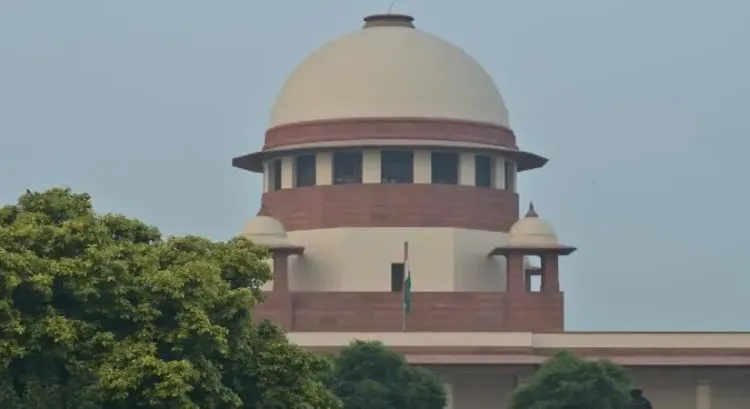Will the Supreme Court Rule on the Waqf (Amendment) Act, 2025 Today?

Synopsis
Key Takeaways
- The Supreme Court will announce its verdict on the Waqf (Amendment) Act, 2025 today.
- The Act aims to regulate Waqf properties and prevent their misuse.
- Critics argue the Act is discriminatory against the Muslim community.
- Prominent political figures are involved in challenging the Act.
- The government defends the Act as a necessary reform.
New Delhi, Sep 15 (NationPress) A Supreme Court bench chaired by Chief Justice of India B.R. Gavai is poised to announce its ruling on Monday concerning a stay on the Waqf (Amendment) Act, 2025. This legislation has faced significant backlash from petitioners, while the Union government robustly supports it as a necessary step to prevent the misuse of Waqf properties and to boost transparency in their management.
The Chief Justice's bench, which includes Justice A.G. Masih, wrapped up hearings on May 22 after three sessions where both the petitioners and the Centre presented their arguments. Following these hearings, the order was reserved.
The amended Act, which was sanctioned by the President and took effect on April 5, 2025, has been contested in the Supreme Court by various parties, including AIMIM MP Asaduddin Owaisi and Congress MP Mohammad Jawed.
The petitioners argue that the amendment is biased and disproportionately affects the Muslim community.
Kapil Sibal, a senior advocate representing the petitioners, characterized the amended law as “unconstitutional” and “arbitrary,” particularly criticizing a provision that permits the suspension of a property's Waqf status during an ongoing investigation.
Supporting this argument, senior advocate Rajeev Dhavan highlighted the religious and social significance of Waqf within the Muslim community. “Waqf is not merely a legal construct but a spiritual and social institution intricately connected to the lives of Muslims,” Dhavan stated, referencing previous Supreme Court decisions. He argued that no external authority has the right to define what constitutes an essential religious practice.
On the other hand, Solicitor General Tushar Mehta, representing the Centre, contended that the concept of Waqf does not inherently qualify as a religious practice. He asserted that Waqf boards handling these properties are performing secular and administrative functions.
The new legislation revised the Waqf Act, 1995 to regulate Waqf properties, which are religious endowments or properties dedicated specifically for religious or charitable uses under Islamic law. On April 17, a bench led by then Chief Justice Sanjiv Khanna opted not to impose a stay on the Waqf (Amendment) Act, 2025, after the Centre guaranteed the apex court that the disputed provisions would not be enforced for the time being.







